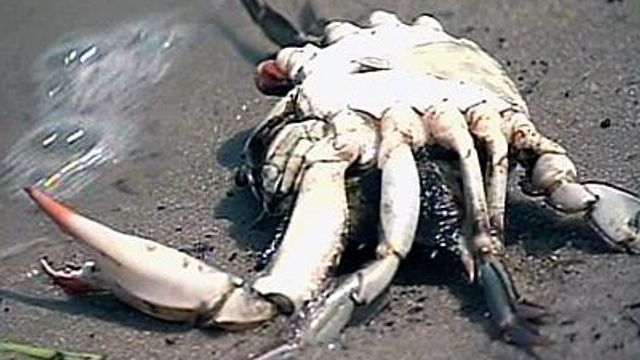State News
More than 500,000 fish die in kill in Neuse River
State officials say more than 500,000 fish died in the Neuse River near New Bern because of a lack oxygen likely caused by hot, still conditions.
Posted — UpdatedNEW BERN, N.C. — State officials say approximately 538,000 fish of different species died in a three-mile stretch of the Neuse River near New Bern because of a lack of oxygen likely caused by hot, still conditions.
Monitoring stations showed oxygen levels dropped in the area between 11 p.m. Monday and 4 a.m. Tuesday. The water temperature was about 90 degrees.
Division of Water Quality spokeswoman Susan Massengale said the weather caused the water to become stratified, with no oxygen on the bottom. It appears that some sort of natural event occurred that stirred the water, causing low oxygen through the entire column.
Among the types of fish killed are striped mullet, blue crab, shrimp, flounder, menhaden, spot and croaker.
Water quality officials spent most of Wednesday on the river collecting samples and monitoring areas of concern.
"I think there is a concern we could see more before the week's out and before the summer's out," said Larry Baldwin, the keeper of the Lower Neuse River.
He acknowledges that the heat contributed to the kill but believes continued pollution is a bigger issue.
"There is a much more serious problem here than just warm water," he said. "We know the river is in trouble. We need to step up and take care of it."
State water quality crews that inspected the area found large algae blooms, which can often stem from pollutants and can add to oxygen depletion in the water. Crews also collected numerous water samples, and they still believe the temperatures triggered most of the trouble.
"We can't change the heat, obviously, but we can change what's going into this river," Baldwin said.
Baldwin says he hopes it will at least highlight the importance of keeping the Neuse clean.
• Credits
Copyright 2024 by WRAL.com and the Associated Press. All rights reserved. This material may not be published, broadcast, rewritten or redistributed.





